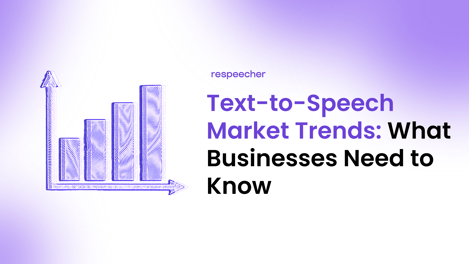Enhancing Audiobooks with Celebrity Voices: A Game Changer in Publishing

The growing trend of using celebrity voices in audiobook production captivated audiences, providing a familiar and engaging listening experience. Public figures bring their unique vocal charisma and fan following, enhancing the appeal of audiobooks and attracting a broader audience. Moreover, advancements in AI voice synthesis technology have made it possible to use celebrity voices in audiobooks, even without their direct involvement.
This technology can accurately replicate the nuances and intonations of well-known voices, creating a seamless and immersive listening experience. Using AI-generated star voices opens up new possibilities for the publishing industry, offering numerous benefits such as cost-effectiveness and increased production speed. However, it raises important ethical considerations regarding consent, copyright, and the potential impact on the voice acting profession.
The Technology Behind Voice Synthesis
AI voice synthesis technology, often called voice cloning, involves using advanced machine learning algorithms to create a digital replica of a person's voice. This process begins with collecting extensive audio samples from the target voice, which are then analyzed to capture the speaker's unique characteristics, intonations, and speech patterns.
Deep learning models, particularly those using neural networks, are trained on this data to produce synthetic speech that closely mimics the original voice. This technology allows publishers to recreate the voices of celebrities with remarkable accuracy, providing listeners with an authentic and engaging auditory experience.
Recent advancements in text-to-speech for audiobooks (TTS) technology have significantly enhanced the realism and quality of AI-generated voices. Now, TTS can generate speech with fluid intonation, appropriate pauses, and emotional expressiveness, making the synthetic voices virtually indistinguishable from human ones.
Additionally, improvements in prosody and the ability to handle complex linguistic nuances have made text-to-speech technology more practical for audiobook production. These advancements ensure that AI-generated celebrity voices are not only accurate but also captivating and enjoyable for listeners.

Benefits of Using Celebrity Voices in Audiobooks
Increased Engagement
When a well-known actor, musician, or public figure lends their voice to a narration, it adds a layer of familiarity and excitement for the audience. Listeners are more likely to be drawn into the story, as the distinctive voice of a beloved celebrity can make the characters and plot come to life in a unique way.
Impact on Sales
Celebrities bring their own fan base, which can translate into a ready-made audience eager to purchase the audiobook. This star power can attract not only fans of the celebrity but also new listeners who might be intrigued by the high-profile narration. Studies and market trends have shown that audiobooks narrated by well-known personalities often see a spike in sales, according to The Times. This increased demand can lead to higher revenues and greater market penetration for publishers using celebrity voice generators.
Marketing Advantage
The involvement of a famous AI voice for audiobooks can be a powerful promotional tool, making it easier to create buzz and generate media attention. Advertisements and marketing campaigns can prominently feature the celebrity's name, leveraging their popularity to attract potential listeners.
Social media platforms, where celebrities often have large followings, become effective channels for promotion, with the celebrities themselves potentially endorsing the audiobook. This strategic use of celebrity endorsements can enhance visibility, drive interest, and ultimately lead to increased sales and a stronger market presence for the audiobook.
Legal and Ethical Considerations of Using AI Voices in Audiobooks
Using celebrity voices in audiobooks involves navigating a complex landscape of legal considerations. One of the primary legal implications is obtaining proper licensing and consent from the celebrity whose voice is being replicated. This typically involves negotiating rights and agreements to ensure that the use of their voice is authorized and appropriately compensated. Publishers must work closely with legal experts to draft contracts covering the scope of use, duration, and other relevant terms to avoid potential legal pitfalls.
Beyond the legalities, there are significant ethical concerns about audiobook voice cloning. Authenticity is a major issue, as the synthetic replication of a celebrity’s voice can blur the lines between real and AI voice narration. There is a risk of misleading listeners if they are unaware that a voice is AI-generated rather than the celebrity’s live performance.
Additionally, the potential misuse of celebrity personas raises ethical questions. For instance, a celebrity’s AI voice could be used to endorse content they do not support or to create controversial or offensive material without their consent. This misuse can harm the celebrity's reputation and violate their personal and professional integrity.
To ethically and legally use AI voice synthesis in publishing, best practices should be followed:
-
Obtaining Explicit Consent: This should involve clear agreements outlining the terms of use, compensation, and any limitations on how the voice can be used.
-
Transparency: Clearly disclose when a voice is AI-generated to avoid misleading the audience.
-
Respecting Boundaries: Avoid using celebrities' voices to endorse views or products they do not support or to create content that could harm their reputation.
-
Legal Compliance: This includes staying updated on legal developments in AI and voice synthesis.
-
Ethical Guidelines: This can help navigate complex situations and ensure that AI-generated voices are aligned with broader ethical standards in publishing and media.

Case Studies and Industry Examples
Notable case studies in using celebrity voice synthesis for engaging audiobooks with AI include the work of Respeecher, a company specializing in voice cloning technology. Two prominent examples from Respeecher's portfolio include the Jolly YouTube channel and Reid Hoffman.
Jolly is a popular YouTube channel co-created by Josh and Ollie, known initially for their other channel, Korean Englishman. They gained fame by introducing Korean culture through humorous content. Their dynamic and unpredictable videos reflect their friendship and internet savvy. Recently, Ollie secretly authored Josh's successful autobiography, later facilitating its audiobook version using Respeecher's technology to ensure Josh's voice narrated the story authentically.
Reid Hoffman, the co-founder of LinkedIn, delves into the evolving role of AI in his book "Impromptu: Amplifying Our Humanity Through AI," published by Dallepedia LLC. Addressing the impact of AI, the audiobook employs Respeecher's voice cloning technology to deliver an immersive experience, replicating Hoffman's voice for listeners, enhancing the narrative's authenticity and engagement.
Another example is that the late Anthony Bourdain's voice was digitally recreated to narrate a cookbook, allowing his fans to connect with him even after his passing.
Publishers who have adopted celebrity voiceover technology have shared valuable insights into the process, challenges, and strategies for successful implementation:
-
Increased Production Efficiency: AI voice synthesis in publishing significantly reduces the time and costs associated with audiobook production. By leveraging AI-generated voices, they can produce high-quality narrations quickly and efficiently, allowing them to release more titles in a shorter time frame.
-
Maintaining Quality and Authenticity: Ensuring the quality and authenticity of AI-generated voices remains a key challenge. Publishers emphasize the importance of extensive training data and rigorous quality control to achieve a natural and engaging listening experience. Collaborating closely with technology providers like Respeecher has refined the speech synthesis process and achieved the desired results.
The Future of Audiobook Production
As technology continues to evolve, several emerging trends are set to shape the future of audiobook production, particularly about AI and voice synthesis:
-
Personalized Listening Experiences: Listeners would choose different celebrity voices for their audiobooks based on their preferences. This customization can extend to adjusting the narration's tone, pace, and emotional delivery to suit individual tastes.
-
Interactive Audiobooks: Integrating AI and voice synthesis could lead to the development of interactive audiobooks, where listeners can engage with the story more dynamically. For instance, AI could enable branching narratives, where the story changes based on listener choices, narrated seamlessly by celebrity voices.
-
Multilingual Narration: With AI-driven translation and voice synthesis, audiobooks could be produced using the same celebrity voice in multiple languages. This capability would greatly expand the reach of audiobooks to global audiences, breaking down language barriers while maintaining the appeal of familiar voices.
-
Real-time Voice Synthesis: Real-time voice synthesis technology will likely improve, allowing for live, on-demand audiobook narration by AI-generated celebrity voices. This could revolutionize audiobooks, live performances, virtual reality experiences, and other interactive media.
Expert predictions suggest that celebrity AI voice generators will continue to influence the audiobook industry in several ways significantly:
-
Expansion of Celebrity Involvement: The use of celebrity voices in audiobooks is predicted to expand beyond traditional media personalities to include influencers, social media stars, and even virtual celebrities. This trend will diversify the types of voices available and attract new listener demographics.
-
Ethical and Legal Frameworks: As AI technology becomes more prevalent, more robust ethical and legal frameworks will likely be developed to address issues of consent, intellectual property, and authenticity. These frameworks will help balance the benefits of AI voice synthesis with the rights and interests of celebrities and creators.
-
Enhanced Listener Engagement: The ongoing use of celebrity voices, combined with advances in AI, is expected to enhance listener engagement further. The familiarity and appeal of celebrity voices, coupled with the ability to create more immersive and interactive experiences, will likely drive increased consumption of audiobooks.
-
Innovative Business Models: The future may see the emergence of innovative business models leveraging AI voice synthesis in publishing. Subscription services, exclusive content deals with celebrities, and personalized audiobook offerings could become standard, providing new revenue streams for publishers and content creators.
Conclusion
Integrating celebrity voices in audiobooks represents a shift in the publishing industry. By leveraging advanced AI voice synthesis technology, publishers can enhance listener engagement, boost sales, and gain a competitive edge in the market. Using celebrity voices offers a captivating listening experience and opens doors to new possibilities for personalized and interactive content.
We encourage audiobook publishers and producers to explore the potential of celebrity voice synthesis technology. Consider how incorporating this innovation could enrich your audiobook offerings, attract wider audiences, and elevate your brand.
Whether through our Voice Marketplace, where you can access over 100 authentic voices through API and the best text-to-speech for audiobooks, or by partnering with us for custom projects, we support your journey toward creating exceptional audiobook experiences. Embrace the future of storytelling with celebrity voices, and discover the limitless possibilities awaiting your next production.
FAQ
AI voice synthesis or voice cloning technology uses sophisticated machine learning methods to mimic human voices. Artificial intelligence platforms can learn voice behaviors and characteristics generally using large voice databases. The result is that they can synthesize artificial speech that mimics the characteristics of the target voice.
Models are trained on celebrity voice samples to provide celebrity voices in audiobooks. By doing this, publishers may use celebrity audiobook narration to reach listeners and increase visibility, utilizing AI-generated celebrity voices to enhance engagement.
There are several benefits of AI-generated celebrity voices in audiobooks, such as reduced production costs, quicker release time, and increased listeners due to the celebrity's fan base. It also provides a reliable and excellent listen, making the audiobook experience more engaging.
Ethical considerations in voice synthesis include obtaining explicit consent from the celebrity, being honest regarding the AI-generated content, and not using the voice for unauthorized messages or advertisements. One should be respectful of the celebrity's image and maintain the content's genuineness.
Text-to-speech for audiobooks enables fast and cheap narration. Advanced TTS systems produce natural-sounding voices with the appropriate intonations and emotional tones, improving the listening experience and offering longer access to audiobooks for different populations.
Legally, publishers are required to obtain the necessary licensing and permission from the celebrity or the estate before using their voice. Unauthorized use can lead to issues of intellectual property and potential legal action, suggesting the need for adherence to legal regulations.
One of the most glaring examples includes AI voice cloning for publishing to revive the voices of deceased actors like James Dean and Judy Garland in order to narrate audiobooks. These attempts reflect the potential for employing famous voice replication for audiobooks to preserve celebrity voices in narrative.
AI voice technology is set to disrupt audiobook creation with its custom narrations, language capabilities, and interactive audiobooks with AI voices. The technology will increasingly create more dynamic and interactive material for audiobook listeners worldwide as it keeps evolving.
Glossary
Celebrity voices in audiobooks
AI voice synthesis
Text-to-speech technology
Voice cloning in publishing
Multilingual audiobook production
Interactive audiobook content
Ethical AI in voice technology

- voice synthesis
- audiobook production
- speech synthesis
- AI voice
- AI voice generator
- Respeecher Voice Marketplace
- text to speech
- TTS
- text to voice
- celebrity voice generator
- text-to-speech voice synthesis
- text-to-speech for audiobooks
- best text-to-speech for audiobooks
- AI voice for audiobooks
- AI voice narration
- text to speech converter
- text to speech voices
- text to voice converter
- celebrity voices audiobooks
- audiobook voice cloning
- engaging audiobooks with AI
- celebrity voiceover technology
- text to voice generator
- AI voice synthesis in publishing




